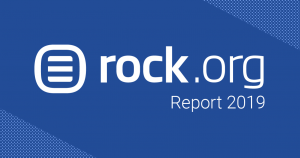
Lately, freelancers have been finding themselves in the crosshairs of legislation that can simultaneously help one group and hurt another such as AB5 in California. The bill has been heralded as a victory by labor groups since the forced reclassification by companies like Uber and Postmates would grant more protections to drivers and other app-based workers who are facing genuine exploitation. However, the bill also threw millions of creative and technical professionals under the bus, a vast majority who have fought hard to become and stay independent. At the time of writing, Chicago and New York are battlegrounds for similar bills to pass despite dissent from freelancers and large companies alike although labor groups and lawmakers have shown support.
Then once in a while, we get a victory that does benefit everyone: Massachusetts’ comprehensive paid family and medical leave (PFML) policy has been expanded to cover the self-employed via voluntary opt-in. It is a move that respects employees and independent workers alike and provides a public option for income lost from sickness, having a child, or caring for a loved one.
Given that unpaid time off related to illness or caregiving is often a significant barrier to starting or maintaining a freelance career, the state is setting a phenomenal example.
The Rampant Problem of Lacking Sick and Family Leave in America
Regardless of which tax form you receive and the nature of the work, it is estimated that 1 in 3 private sector workers in America do not have any paid sick days. While workers in low-wage jobs face the brunt of this inequity, there are also plenty of people employed in the professional sector who do not have any paid sick time at all, or abysmally few paid sick days. Family leave can also be utterly lacking or nonexistent altogether. Even in states like New York that mandate 12 weeks of unpaid family leave without firing workers, it is only the city and not the rest of the state that mandates employers to provide paid sick days.
But note that the keyword is “unpaid”. People are often hesitant to go freelance because of the reasonable fear that they could suffer an untenable loss of income if they get sick, despite the flexibility this type of career often grants. But even if you have a regular job, this fear is not totally mitigated.
Because of this massive problem, including physical and/or mental health issues that hamper the ability to hold down a regular job, many chronically ill people turn to freelance work to make ends meet or even find a career that they can thrive in. If you can’t even get guaranteed sick pay without risking termination, demotion, or other forms of retaliation, might as well do it on your own terms as a freelancer, right? The problem is that when a chronic illness flares up or you need downtime from a surgery, it can make both the unplanned and planned aspects of managing a chronic health issue incredibly stressful when you know you could be losing weeks or even months of income.
Even well-paid freelancers will get sick, or have to care for a sick family member. The freelance life offers many incredible benefits that are totally inimitable, but we’re still all made of flesh in the end. And flesh tends to get faulty even if you take care of your health. If your child or spouse gets sick and you need to become a caregiver, it also equates to a loss of income and people in marginalized groups are always disproportionately affected by this.
By having a public fund to contribute to which respects our autonomy, what Massachusetts is doing with PFML is revolutionary despite some of the hurdles involved.
Why is Massachusetts’ Decision to Expand PFML Policy Revolutionary?
A significant number of freelancers fear the financial consequences of getting sick, needing time with a new baby, or having to care for a loved one. Typically, the response from people who do not work within the gig economy has been to “just get a regular job” (which, quality of life and autonomy issues aside, can often end up not being much better than freelancing with respect to paid sick and family leave) or to opt for a private solution like purchasing disability insurance. After all, Social Security disability income is not an option for temporary disabilities (12 months or less).
First, the cost can simply not be feasible for newer freelancers or those whose earnings are not very high. Similar to dental and vision insurance, buying a disability plan on your own often costs more and covers less than employer-sponsored plans. There is no real “average cost” for premiums because it depends on your chief profession, where you live, and your specific needs such as chronic illness, pregnancy, or a child who is prone to illness. The closest estimate available is that it is predominantly income-based, about 1-3% of your annual income. Since freelance writers can have major fluctuations in their earnings, estimates are harder to obtain. You can end up paying a higher premium in a bad year if you enrolled during a good year. A writer making $50,000 would effectively pay $500-1,500 a year, this expense could be harder to justify if your income is half of that.
The other major problem is that short-term disability insurance is incredibly difficult to navigate. The paperwork involved is labyrinthine and your payout could be based on prior and potential earnings, or solely on an actuarial table based on what you enter as your self-employment occupation. Writers aren’t even listed on this page of common A, B, C, and D ratings for private short-term disability insurance. A medical exam is also required for underwriting the policy, similar to how it’s done for life insurance. Institutional biases could be at play where women are forced to pay more even if they don’t want children, as well as weight stigma, medical conditions, and other factors that could cause your premium to skyrocket.
Most of all, private disability insurance can end up falling short of your needs in addition to benefits being difficult to access. If you’re paying premiums and have bills due while you’re too sick to work, but the payout doesn’t arrive until 90 days later, how does that help?
Then the plan may only cover serious illnesses exceeding a month, while a two-week bout of the flu or bronchitis can be equally devastating. Getting proof that you were incredibly ill can also be hard to obtain if you can’t afford a doctor visit. Better yet, pregnant subscribers are often expected to have this coverage in place before conception, and I don’t think any reasonable person wants an insurance adjuster in their bedroom to help prove this timing.
Similarly to health insurance, short-term disability insurance is onerous and difficult to administer through a private company. The biggest and best risk pool is to just to make it a public program where all are recovered regardless of income and family size.
Only five states currently have short-term disability programs:
- California
- Hawaii
- New Jersey
- New York
- Rhode island
The eligibility for these programs varies and it is often difficult or impossible for self-employed people to participate. Solopreneur writers and content creators who operate as small businesses may essentially have to declare themselves employees in order to receive any benefit, and often just bear the risk of lost income while sick or taking up caregiving responsibilities. Similarly to private policies, you may also need to be enrolled in the program long before the accident, sickness, or pregnancy occurs.
Massachusetts’ action was revolutionary because in expanding the risk pool to the self-employed, it not only provides an invaluable benefit regardless of profession but also even makes the load lighter for employers and employees contributing to the family leave fund. No intrusive medical exams are required in order to enroll since it is solely income-based. Almost like it’s one big GoFundMe!
How Does Massachusetts’ PFML Policy Work?
To get down to brass tacks, Massachusetts residents need to enroll in the program via voluntary opt-in through MassTaxConnect. but must be making contributions to the PFML fund for a minimum timeframe before any benefits can be claimed. You must pay in at least two calendar quarters (six months) of the preceding four quarters (full year) with at least $4,700 in earnings during the most recent four quarters before applying for benefits.
You are also mandated to stay enrolled for a minimum of three years. Earnings reports must be submitted to the state quarterly to pay 0.75% of your earnings. For instance, if you averaged $3,500 a month in earnings the last quarter, you’d report $10,500 on your quarterly report and pay $78.75 in PFML contribution. If your earnings were $5,000 a month, you’d pay $112.50 for the quarter and $450 for the year, which is far lower than private disability insurance.
While the policy doesn’t offer immediate relief, private disability insurance doesn’t either. However, access to benefits has far simpler terms. There is also the option to declare yourself your own employee to get full PFML contributions and benefits, but you don’t actually have to do this if you don’t want to take out worker’s compensation insurance, start a payroll account, and deal with the additional administrative burden just to pay and insure yourself.
You can be and stay independent on a 1099 basis, or working with private clients, and be covered so long as you enroll on time, maintain your enrollment for at leat three years, and make your earnings reports and contributions on time.
Will Other States Consider Similar Legislation?
Addressing the lack of sick pay for freelancers and other benefits typically reserved for employees, and the validity of freelancer classification period, are hot button issues in 2020. Some legislators are honing in on tearing at worker status altogether by either attempting to force employers to reclassify as is the case with AB5, because let’s get real– there ARE workers who need it.
However, other lawmakers and spheres of influence are starting to recognize that many of us are thriving in the gig economy and want to stay independent after carving out fantastic careers for ourselves, but the market cannot solve problems like needing downtime after having children or the devastating impacts of being too sick to work. Robust public programs like paid medical and family leave that are income-based, instead of arbitrarily chosen based on demography, empower both employees and the self-employed to get their jobs done without having to stay up at night worrying about lost income.
While the benefits still have conditions, they’re the first of their kind available to the self-employed on a public level. It will be interesting to see how successful the program is and if other states or local governments will consider adopting similar policies as the number of voluntary free agents continues to grow. The gig economy is here to stay, for better or worse. It’s best to get all workers protected regardless of what they do and how much they make, and enact policies that enable people to choose the careers and lifestyles that make sense for them and their families.
Stay on top of the latest developments in the gig economy by following the WriterAccess blog’s gig economy category!

![[ROCK NA] [EBOOK SEO] Complete Guide](https://rockcontent.com/wp-content/uploads/2024/06/banner_Search-Engine-Optimization.png)






